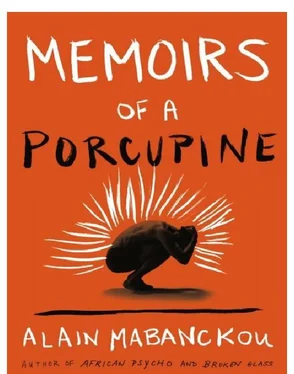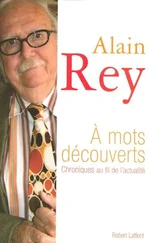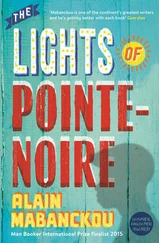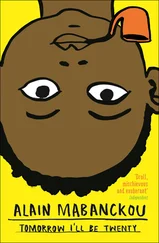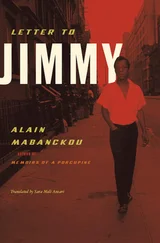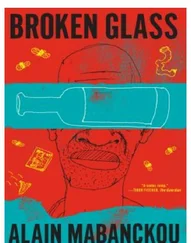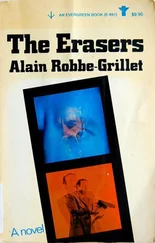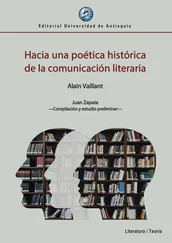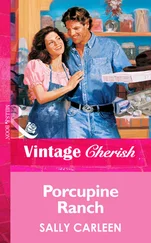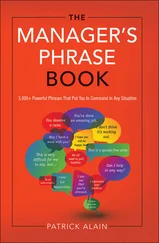it was as though with age Papa Kibandi was returning to the animal state, he stopped trimming his nails, when he ate he did it just like a real rat, he scratched his body with his toes, and the people of Mossaka, who had always treated it as a rather sick joke, an old fool’s game, began to worry about it, the old man developed long sharp teeth, particularly at the front, tough grey hairs sprouted from his ears and straggled down to his jaw, and whenever Papa Kibandi disappeared around midnight, Mama Kibandi never even realised he’d gone, she just saw her husband’s other self lying in the bed by her side, my young master would suddenly find columns of rats marching up and down in the main room of his parents’ house, he knew the largest of these rodents, the rat with the big tail, flattened back ears, and hooked paws was his father’s double, he mustn’t whack him with a stick, though one day, for fun, he’d sprinkled rat poison on a piece of tuber and left it at the entrance to the hole where the rodents came out, a few hours later there were a dozen or so rats lying dead, while his parents slept my young master quickly gathered up the defunct rodents, wrapped them in banana leaves, and went and disposed of them round the back of the hut, but in the early dawn, to his great surprise, Papa Kibandi came and gave him a talking-to, saying ‘if you want to do away with me, get a knife and kill me in broad daylight, it’s thanks to me you are who you are today, ingratitude is an unforgivable sin, I hope I won’t have to speak to you about this again’, Mama Kibandi knew nothing more about it, father and son understood each other
and there were so many deaths in Mossaka, one hard upon the other, nose to tail burials, you’d no sooner finished lamenting one dear departed, and there was another one lined up, Papa Kibandi didn’t go to the funerals, which got people asking questions in the village, where everyone knew everyone, he saw people looking at him, crossing the street to avoid him, with his rat-like air, and then there were the women who gossiped about him at the river bank, his name came up at every meeting in the palaver hut, children wept and clung to their mothers’ skirts as soon as the old man appeared, and even the Batéké dogs barked from a distance, or from their masters’ doorways, the whole of Mossaka now had it that there was something about Papa Kibandi, every detail of his life was scrutinised, examined with a fine toothed comb, it was strange, they said, how he hadn’t had many children, just the one, when his hair had already turned grey, he was prime suspect for any one of these deaths, take his own brother, Marapari, for example, who died sawing down a tree in the bush, when he was the best woodchopper in Mossaka, eh, it’s true that the brother had changed his working method, had got himself an electric saw, something you needed to learn to use, in this part of the world where everyone still used axes, perhaps Papa Kibandi was jealous of this piece of equipment, then, envious of his brother’s savings, which came from the profits from its use, from hiring it out, and what about the death of his younger sister, Maniongui, who was found limp, lifeless, with wide staring eyes, the day before her wedding, eh, everyone knew Papa Kibandi was opposed to the union for some reason to do with regions, ‘no marriage between a northerner and a southerner, and that’s that’, he’d say, and what about Matoumona, the woman Papa Kibandi wanted to take as his second wife, a woman of half his age, eh, did she not die when her corn soup went down the wrong way, and Mabiala the postman, who seemed to be interested in Mama Kibandi, and Loubanda the tam-tam maker, who was just too successful with women, and Senga the brick maker who wouldn’t come and work for him, and Dikamona, who sang at vigils for the dead, who snubbed him, and had publicly called him an old sorcerer, and Loupiala, the first qualified nurse Mossaka produced, a young woman who, according to Papa Kibandi, talked a lot but said nothing, and was always showing off her diploma, hm, and Nkélé, the biggest farmer in the region, a selfish man who’d refused him a plot of land by the river, eh, what had happened to all these people not related to him, who popped off one after the other, ah, my dear Baobab, these disappearances were all blamed on Papa Kibandi, while he gazed serenely into the middle distance, as though there was nothing he could do about any of it, as though he were above what he himself called ‘petty disputes of lizards’, and since no one would speak to him, he gathered his hurt pride about him and told his son and wife not to speak to the rest of the village, not to say hello, and whenever he passed another villager he spat on the ground, he called the village chief all sorts of names, called him wretched and corrupt, said he only sold land to his own family, and then there was the fateful business of the family conflict which the people of the north were never to forget, the falling out with his sister, the youngest in the family, and she should have known better, because here again, Papa Kibandi would shuffle the cards with his own hand, sow doubt in the minds of the villagers, postpone what should have been the end of his earthly existence, only Papa Kibandi could pull that off, believe me, dear Baobab, and to this day I still can’t believe he took them all for such a ride
it was during the dry season in Mossaka, when the waters of the Niari river scarcely covered the bather’s ankles, that the terrible event occurred, one day at sunset they found the lifeless body of Niangui-Boussina on the far bank of the river, across the water from the village, her belly swollen, her neck puffed up as though she’d been strangled by a criminal with giant hands, she was none other than the niece of Papa Kibandi, the daughter of his younger sister, Etaleli, whom I will call Aunt Etaleli, as my master did, Ninagui-Boussina was a teenager who had come to spend her holidays in Mossaka with her mother, their village was a few kilometres away, Aunt Etaleli insisted her daughter could not have died from drowning, not that, no way, she was born on the banks of the most dangerous river in the country, the Louloula, she’d spent her childhood in the water, it was an odd business, Papa Kibandi’s name obviously came up, Aunt Etaleli said she wasn’t leaving Mossaka until some light had been shed on the drowning of her daughter and as tensions began to rise, she left her brother’s house and went to stay with a friend, and did not leave her house until the day the body of the young girl was to be brought back to Kiaki, the village where Aunt Etaleli lived with her husband, and this time Papa Kibandi heard the word ‘sorcerer’ the minute he set foot outside his house, they called him ‘plague rat’, wouldn’t let him put his case, he would have liked to discuss it with his sister, point out that they could accuse him of many things, but not of eating his niece, and when I say eating , my dear Baobab, you must understand that I am talking about terminating someone’s life by means which are imperceptible to those who deny the existence of a parallel world, in particular incredulous humans, well then, for porcupine’s sake, on the day of Niangui-Boussina’s burial in Siaki, they waited for Papa Kibandi with poisoned spears, they planned to skewer him in public, in the very village where he was preparing to come to pay his respects to the memory of his niece, at the last moment he changed his mind, the old rat he’d sent ahead to sniff things out caught wind of what was afoot, how Aunt Etaleli, along with some of the other inhabitants of Siaki, had set a trap for him, but anyway, a week after the funeral Aunt Etaleli showed up in Mossaka again early one morning, with a delegation of four men, she shouted at Papa Kibandi, saying openly, ‘it was you that ate Niangui-Boussina, you ate her, everyone knows, everyone says so, now look me in the eye and admit it’, Papa Kibandi denied the accusation, ‘I didn’t eat her, how could I eat my own niece, hm, I don’t even know how you eat someone, the girl died of drowning, that’s all there is to it’, and his sister got to the point and said, ‘if you’ve got any balls come with us to Lekana, the witch doctor Tembé-Essouka will pick you out in front of these four witnesses, one of them is from Mossaka anyway’, and to everyone’s surprise, perhaps also because there was such a crowd pressing in around them, Papa Kibandi offered no resistance, just put on his rubber shoes, pulled on a long boubou, and said defiantly, ‘I’m all yours, let’s go, you’re wasting your time, sister’, and Aunt Etaleli replied ‘don’t call me sister, I’m no sister to an eater ’
Читать дальше
